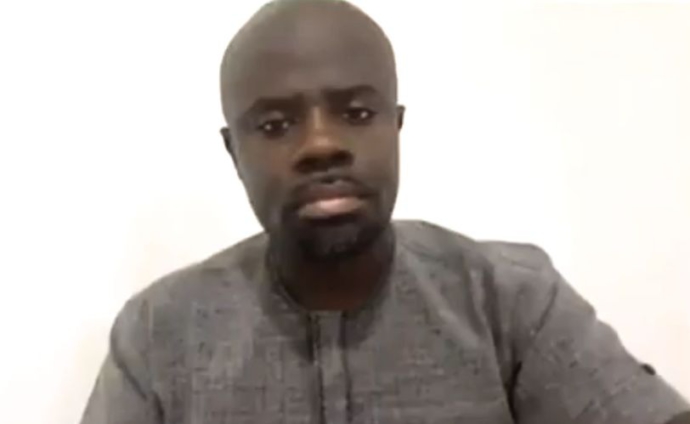The Dean of the University of Professional Studies, Accra (UPSA) Law Faculty has praised the manifesto of the National Democratic Congress (NDC) which seeks to expand access to professional legal education.
Ernest Kofi Abotsi stated that their policy with regard to legal education in the country is clear and straightforward.
The NDC on page 74 of its manifesto promised to "vigorously" reform and expand access to professional legal education and provide the opportunity to all qualified LLB holders to undertake the professional law qualification course”.
Unlike the New Patriotic Party (NPP) that promised to expand infrastructure for access to professional legal education.
“The pressures of responding to popular sentiment may invariably lead to decisions that are made that do not necessarily address the core issue.
"Between the two manifestoes, clearly, the NDC goes a step further than the NPP by itemizing specifically what it intends to do about the reform," he said Saturday.
Speaking on JoyNews' Newsfile, the Dean admitted that it is gratifying that the NDC has considered the issue of accrediting other law faculties.
However, he said that development must be accompanied with the improvement of their capacity that is, having the necessary human resource to train the students at that level.
Ernest said this quest must not replace the quality of teaching and learning if it is realised.
“Often, if we do not put in place the mechanisms, metrics and systems of assessment to ensure that as we expand access, people are getting the requisite content."
“Legal education divides into two parts. The theoretical, which is the faculty and the professional training which looks at the procedural aspect of the substantive law.
"Over the years it turns out we have produced a lot more people that can teach the theoretical substantive law but not as many to teach the procedural law,” he lamented.
He stated that if more people are trained to teach the procedural aspect of law, then the NDC’s policy is workable.
The proposal by the NDC has been endorsed by a massive number of law students.
Some of these students have in the past embarked on demonstrations to register their displeasure with the difficulty associated with entrance to the Ghana School of law.
Recently, the National Association of Law Students has launched an attack on the governing NPP’s proposed policy to reform legal education.
The group says the plan is not a reflection of recent global developments making it “awkward, misleading, retrogressive, and very weak.”, as compared to that of the NDC which they say proposed solution as “giving hope, more caring, and believable”.
Background
Admission to the Ghana School of law has been a topical issue in the country as many LLB holders struggle to gain entry.
Some law experts have called for the accreditation to other law faculties to enable them to provide professional law courses.
One of such advocates is CDD-Ghana fellow in Public Law and Justice, Prof. Stephen Asare who dragged the Attorney General and General Legal Council to court with the argument that the current arrangement on legal education is unconstitutional.
However, the Supreme Court has in a unanimous decision dismissed the case.
Latest Stories
-
NPP NEC holds high-stakes meeting over constitutional reforms, mulls electing flagbearer before executives
5 minutes -
Democracy Hub sues gov’t over deportation of foreign illegal miners without trial
9 minutes -
Ministry of Tourism, Culture and Creative Arts and Ghana Culture Forum host strategic Stakeholder dialogue
12 minutes -
Pope Leo XIV has distant ancestral ties to Justin Bieber, Madonna and other world leaders
19 minutes -
Kwame Sefa Kayi ignited my radio dream – KMJ
23 minutes -
Annoh-Dompreh’s family defends his royal lineage amid Adoagyiri chieftaincy unrest
25 minutes -
Venue change announced for Tamale Constitution Review forum
30 minutes -
Six new Mpox cases confirmed in Ghana, total rises to 91
31 minutes -
Sinapi Aba wins big at 68th Asantehene Golf Tournament in Kumasi
39 minutes -
I was once a ‘shoeshine’ boy – KMJ
46 minutes -
Teachers aiding candidates to cheat in BECE worrying – WAEC
51 minutes -
Salomé Azevedo appointed as Managing Director of Nestlé Ghana Ltd
53 minutes -
NPP’s loss due to frustration, nothing to do with our candidate’s religion – Freddie Blay
1 hour -
ECG disconnects Ghana Water Company’s Weija plant from national grid over nearly GH¢1bn debt
2 hours -
Scientists advocate repurposing of abandoned mining concession at DAAD-Alumni conference
2 hours

